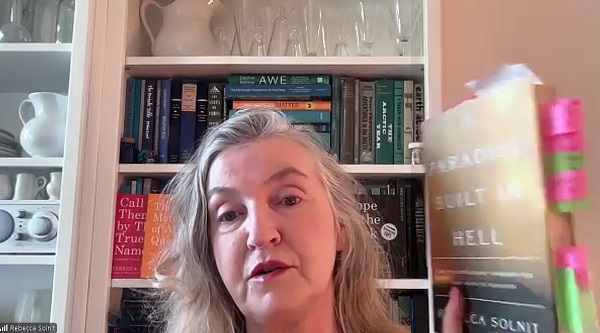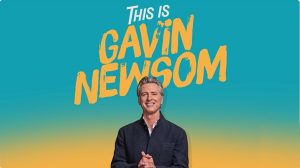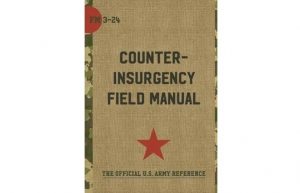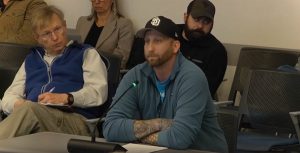Rebecca Solnit on disasters: We can strengthen local relationships and democracy
6 min read
Presenter: Writer, historian, and activist Rebecca Solnit sees hope that we as Americans can survive our self-inflicted disasters. She spoke March 25 on the topic: We Are Not Who They Told Us We Are: Everyday People In Extraordinary Times.
Rebecca Solnit (Author, A Paradise Built In Hell): Yeah. I came up with that title because who we think we are is really important to the kind of society we build and the way we respond in disasters. And I think one of the genesises (genesii?) of this event was my 2009 book, A Paradise Built In Hell.
[00:00:34] And it really arose out of the way Hurricane Katrina, a somewhat natural disaster of a hurricane, became a wholly unnatural disaster based on inhumanity, racism, and a lot of assumptions about human nature.
[00:00:52] And the status quo assumption when I wrote this book was that ordinary people are selfish, competitive, chaotic, and that, of course, justifies authoritarianism. If ordinary people can’t be trusted, we need lots of police, law enforcement, the military, authoritarianism to keep people under control.
[00:01:12] And a lot of disasters from the 1906 earthquake in San Francisco where I live to Hurricane Katrina became far worse because the people in power both assumed that ordinary people needed to be repressed, controlled, bossed around, even shot in the back, and that private property mattered more than human life.
[00:01:34] But what actually happens in disaster? You saw that in 1906. You saw that in Katrina, Helene. Most people in a disaster are brave, creative, altruistic, generous, and improvise the conditions of survival, take care of each other, rescue each other, pull each other out of the wreckage, build the community kitchens, rebuild.
[00:01:56] And so not only does this assumption about who we are matter desperately in a desperate situation: Are you about to commit a crime and somebody needs to shoot you? Or are you about to rescue a stranded person and somebody needs to help you?
[00:02:12] But it really applies to everyday life too. I think these bleak assumptions about human nature justify authoritarianism at the same time that consumerism wants us… The best consumer, I think, is a person who’s lonely, alienated, trying to find meaning and joy through shopping, consuming, et cetera.
[00:02:36] The worst consumer is somebody who’s finding their joy and meaning through other human beings, through connection, through social activity, through nature, through all these things that nobody owns and nobody’s marketing.
[00:02:49] So that debate about human nature is really important. And what amazed me when I wrote this book was not just that people are good in disasters. And I read so many amazing stories about that when I followed what happened in Asheville and the surrounding area.
[00:03:06] Not only are people good, but they find a kind of purpose, meaning, and connection that we often miss in modern, industrialized everyday life, which is why so many of the accounts I brought together in this book are of people who really sound often quite joyful. And it reminded me, or what it taught me, is that this is what we most truly want. This is who we truly are.
[00:03:32] We want meaningful work, meaningful connection, purpose, immediacy, and these things that often get kind of flattened or pushed out of everyday life.
[00:03:43] And I wrote this book because I knew even in 2009, that we were entering an era of more disasters and more intense disasters. And I wish I was wrong about that, but I’m not.
[00:03:54] So, yeah, I think there’s a lot we can learn. What I found most challenging in these accounts of disaster I collected, going from the 1906 earthquake to Hurricane Katrina, is that people were remarkable in the moment, and then a lot of people went back to regular life. The life that was alienating, the life that lacked meaning, the life that lacked connection. A minority of people said, ‘I need life to be like this all the time.’
[00:04:22] One of them who was remarkable for me was Dorothy Day, the now-beatified co-founder of Catholic Worker, a kind of social justice and Catholic mysticism group. She was a little girl in Oakland when the Bay Area earthquake hit in 1906.
[00:04:40] And she said while it lasted, people loved one another. And ultimately after many chapters in her life as a bohemian, a mother, a journalist, et cetera, she decided to devote her life to trying to create something permanent.
[00:04:58] So the question is: how do we take not the disaster, which is terrible and undesirable, but who we are in disaster, which is wonderful and desirable, how do we make that permanent?
[00:05:10] I think that there are social practices, social organizations, spiritual organizations, educations, teachings, et cetera, that can help people stay awake and preserve that sense of who we can be, this heroic sense of self, which I deeply believe in, in a time when we get cartoon muscly, violent superheroes in movies, but we don’t really talk about the heroic otherwise as generosity, as kindness, as altruism, as taking care of each other.
[00:05:41] A disaster is an opening up, and for a society that’s become stagnant, it offers the possibility of change. Those invested in the status quo want to return things to the way they were. For the people for whom the way things were didn’t work, often the transformative and even revolutionary possibilities are exciting.
[00:06:01] And so instability, destabilization, you know, you can find opportunities in it. And I think there is a real danger of going back to the way things were, which is often part of what caused the disaster.
[00:06:16] So I think it’s this very strange moment and you know, human beings, contrary to what some of the doomers say, civilization isn’t going to die out. Human beings are not going to die out. Life on earth isn’t going to die out.
[00:06:27] But people 100, 200, 500 years from now are going to say: ‘What the f— were they thinking? When we knew exactly the dangers of climate change,’ and we didn’t rise in the ’90s, the aughts, the 2010s and now the 2020s. You know, it’s never too late, but the more we do now, the better.
[00:06:53] Presenter: She says the current destabilization of the government should be seen as a disaster. Rebecca Solnit:
[00:07:00] Rebecca Solnit (Author, A Paradise Built In Hell): In the political catastrophe we’re in now, and I’m aware that not everyone listening may agree with me about it, but so many things: Social Security, the functionality of agriculture and farmers, the safety of air travel, the safety of immigrants. So many things are being destabilized.
[00:07:19] Somebody once said that Americans learn geography through war. You know, we go invade a part of the world, and then it’s like, ‘Oh, it’s time to learn about Central America. It’s time to learn about the Middle East.’
[00:07:30] I think Americans are learning about government through this crisis: ‘Oh yeah, this piece of the government does something really important. Oh, USAID contributes hugely,’ not only to this kind of polemical agenda of, like, the U.S. looking good abroad, but it actually plays a huge role in global health and that affects the well-being of this country. Agriculture, and I was just reading about them laying off all the people who maintain our seed banks, which gives us the resources to create resilient crops when climate or new diseases emerge.
[00:08:03] And I think again, this is a disaster and the response to it that is going to be so helpful, whatever comes, is for people to strengthen their relationships, especially their local ones. Who are you going to respond to when resources get shut off, when the things people count on are no longer there?
[00:08:23] And so it’s an opening. It’s terrifying. What they’re doing is hideous. What we do can be beautiful. And I think it starts with really deeply valuing democracy and maybe a deeper democracy even.
[00:08:41] My friend Rob Macfarlane has a book coming out about the rights of nature, recognizing the rights of rivers, of mountains, of species, of salmon, of migratory birds. So I think that there’s a kind of deep democracy that in many ways is a value of many of us.
[00:08:59] And I think what we’re seeing is backlash against a world in which women are equal, people of color are equal, trans and queer people are equal, people with disabilities are equal, people who don’t speak English as a first language are equal. They’re trying to create a world of radical inequality, and the only meaningful answer to that is to work even harder for a world of radical equality.
[00:09:22] Presenter: Writer, historian, and activist Rebecca Solnit speaks with Warren Wilson College in western North Carolina. She says in the current disaster it will be important to strengthen local relationships.







